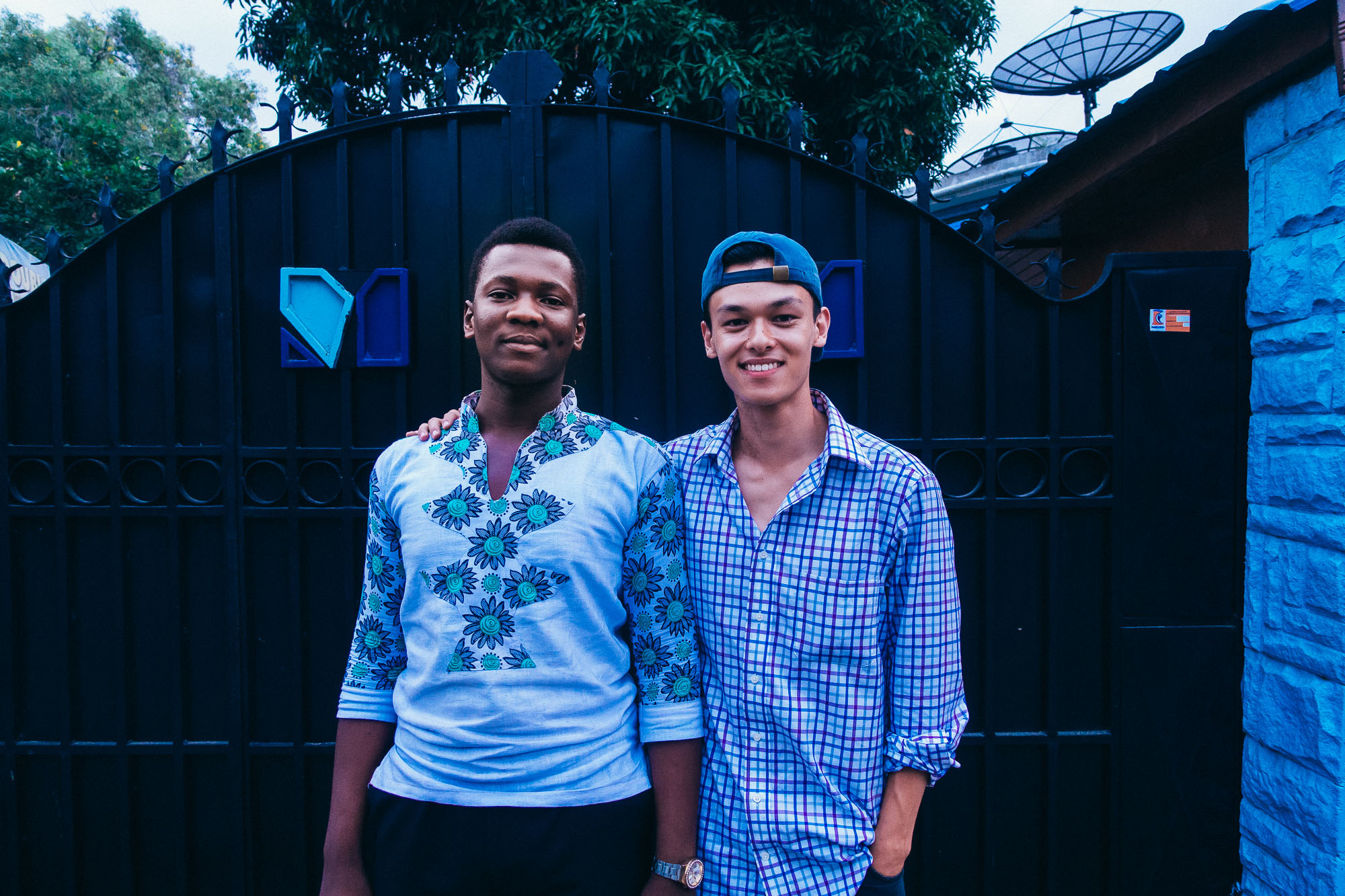I, like most people, relish the end of a workday. However, I have an added incentive to clock out and make my way home. After taking the tro tro home the first day, I was elated to find out that Metro TV had company cars that drove workers home. This was truly a blessing, as the cars took the back roads that avoided the infuriating 6 p.m. traffic on the highway. But the real reason that the rides are so pleasant on the way home are thanks to my two newfound friends Michael and Tryphena.
Michael is a 2nd year student who attends the University of Ghana and Tryphena is a 4th year student that attends IGI (still not sure what the acronym stands for). It seems like pure fate that every day I get to ride home with two coworkers who are a similar age to me. At the beginning of our car rides home, it was just me and Michael. These were always interesting car rides, as it took a little prying to get Michael to open up at first. Although quiet and reserved at first, Michael’s middle name is facetious. He loves to bend the truth at the expense of my obliviousness. Michael once told me that his last day of working at Metro TV was the upcoming day. Not until the end of the car ride did he tell me he would be interning until August.

Apart from the jokes, my favorite part of the car rides is to comparing and contrasting Ghanaian and American cultures. Michael has never taken a sip of alcohol in his life — or so he claims. He explained to me how in Ghanaian culture, one is perceived as lazy and will do nothing in life if they drink alcohol. Contrarily, alcohol is fundamentally rooted in American culture. While alcohol may not the best example or portray America in a positive light, the point I am trying to make is that comparing and contrasting Ghanaian and American cultures with Michael has given me a new perspective on life in general. The way you are brought up and the experiences you encounter lead to your identity. I am fascinated how even though Michael and I are very different we are still able to connect on a human level despite being from other sides of the world.
When Tryphena began taking the car with us to Medina, she brought energy into the ride, along with a few punches she playfully enjoys throwing at me. Tryphena and Michael translate various radio programs for me, help me understand Ghanaian politics a little more (although I am still confused by the 15 political parties running for candidacy), and even teach me how to ask for bigger coconuts in Twi. They are all around helpful.

Aside from our conversations on how our cultures differ, we also discuss issues of race. I try to explain that not all Americans are racist, but they also explain to me that how the perception of race is an inherent and visceral part of Ghanaian culture and history. This has been a recurring theme along the trip as my race has impacted how I am perceived on the street and at work. The privilege I have based on my skin color is biased and unfair. Yet, I have to accept that the world is biased and unfair. The problem is not race itself, but how to break the barriers of race to see each other as equal, an idea that has been preached countlessly, yet we still find difficulty practicing. While I might not be able to convince my two friends that not all Americans are racist, I find solace that I am able to break down our own small barrier between races on our car rides home — laughing, joking and connecting.
